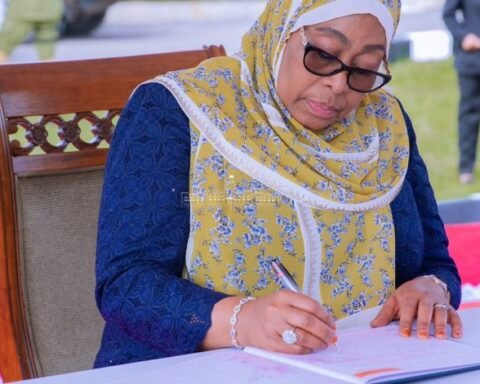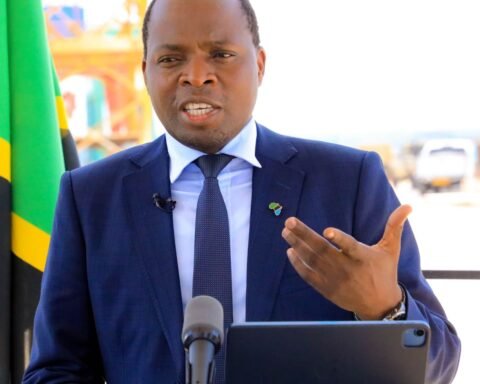Tanzania is advancing steadily in establishing robust governance for its carbon trading market, focusing on clear regulatory frameworks, institutional coordination, and wide stakeholder involvement.
The State Minister in the Vice President’s Office for Union and Environment, Hamad Yussuf Masauni, outlined the government’s commitment during a ceremony in Dar es Salaam where he received the latest Carbon Trading Performance Assessment Report. The report, compiled by a government-appointed committee, reflects progress in enhancing transparency, accountability, and sustainability within Tanzania’s growing carbon market.
Central to this progress is the enactment of the Environmental Management (Control and Management of Carbon Trading) Regulations, 2022, which were amended in 2023 to further strengthen oversight of carbon projects. These regulations provide clear guidelines for registering carbon initiatives, monitoring greenhouse gas emissions, and verifying carbon credits, ensuring alignment with international standards such as the Paris Agreement and the Kyoto Protocol.
The establishment of the National Carbon Monitoring Centre (NCMC), based in Morogoro, has been pivotal in driving these efforts. The NCMC is responsible for project registration, emissions monitoring, and public awareness campaigns, ensuring that carbon trading activities contribute to sustainable development goals (UNDP Tanzania).
To date, Tanzania has registered 73 carbon projects across various sectors including forestry, renewable energy, agriculture, and waste management. Of these, four projects are already operational, while the rest are in various stages of registration. Zanzibar has also enacted its own carbon trading regulations and attracted interest from multiple firms, signaling a regional commitment to carbon market development.
Despite these achievements, challenges persist. The Controller and Auditor General’s report highlighted gaps in contract oversight, noting the limited involvement of the Attorney General’s Office in vetting agreements, which raises concerns about transparency and equitable revenue sharing. Additionally, sectors such as transport and industry remain underrepresented in carbon project portfolios, partly due to limited technical capacity and guidance.
Also Read; UK to Open Satellite Diplomatic Office in Dodoma
Minister Masauni emphasized the potential of carbon trading as a driver for economic growth and environmental conservation. He cited promising opportunities in sectors like railways, urban transport, power generation, construction, mining, and the blue economy. These sectors, he explained, can benefit greatly from carbon financing, boosting jobs and local incomes.
Complementing regulatory reforms are ongoing public education initiatives. The government has developed training materials and organized dialogues across districts and villages to enhance awareness about carbon trading. These efforts target community leaders, government agencies, media, and security personnel, addressing the low levels of knowledge that currently hinder broader participation.
Tanzania’s approach exemplifies a balanced path toward integrating climate finance with sustainable development. By aligning with international frameworks and building local capacity, the country is setting a foundation for transparent, accountable, and inclusive carbon markets.







